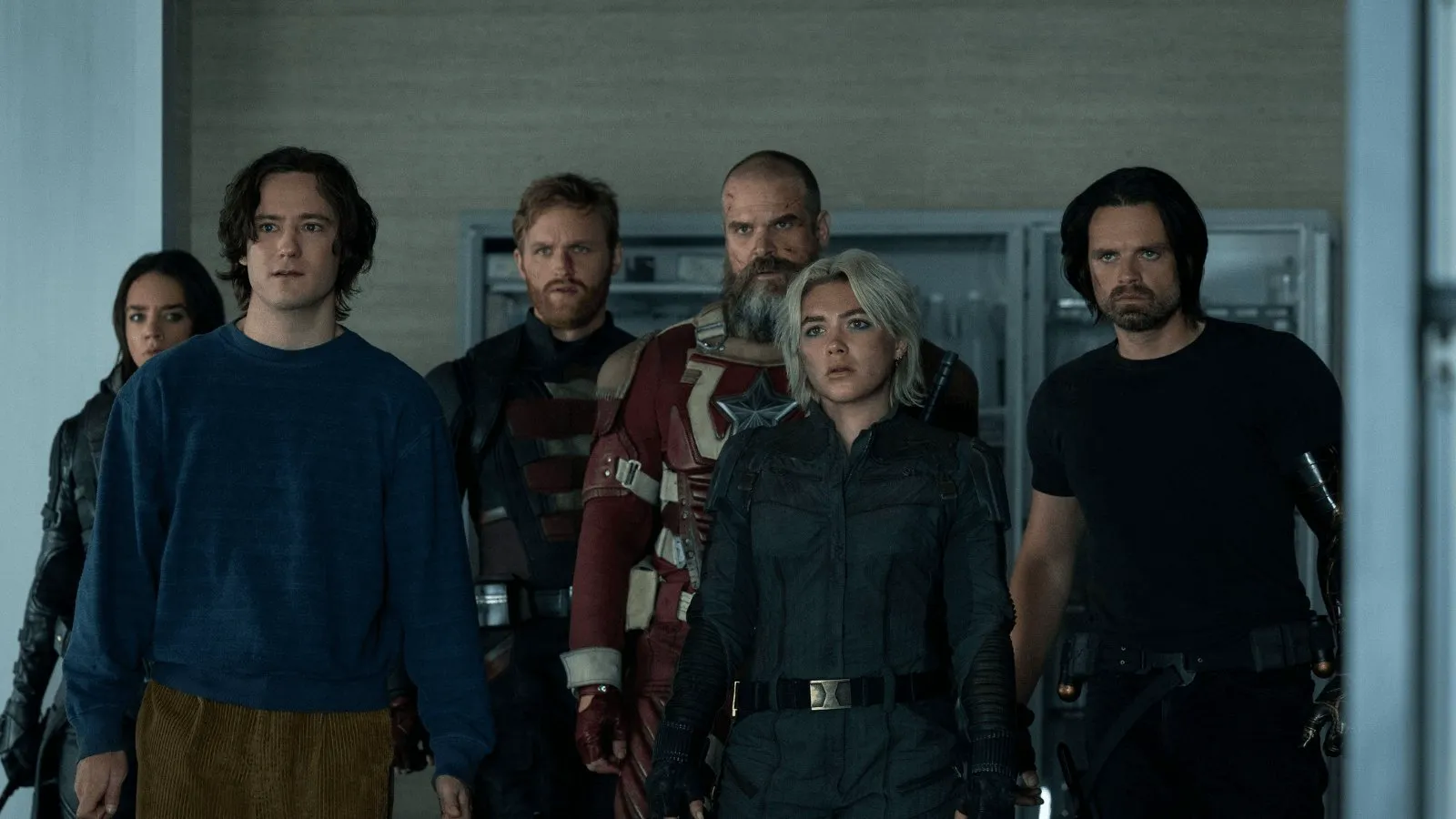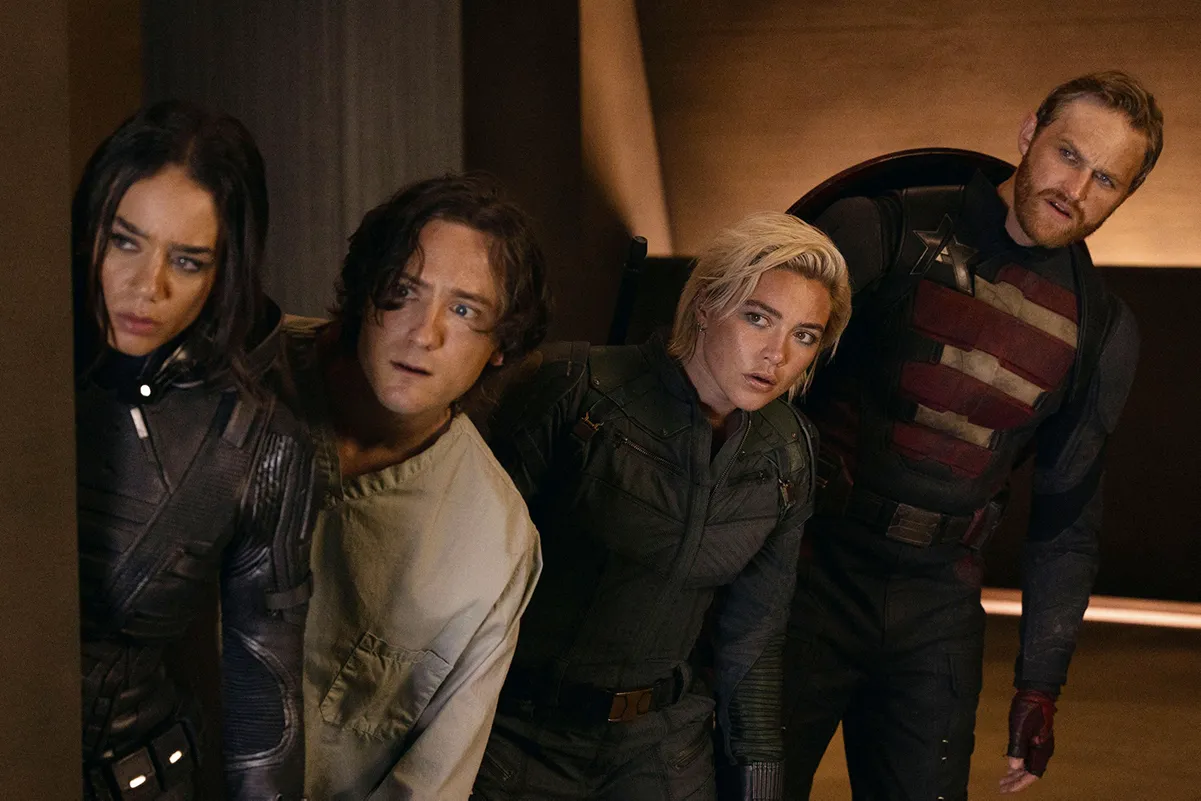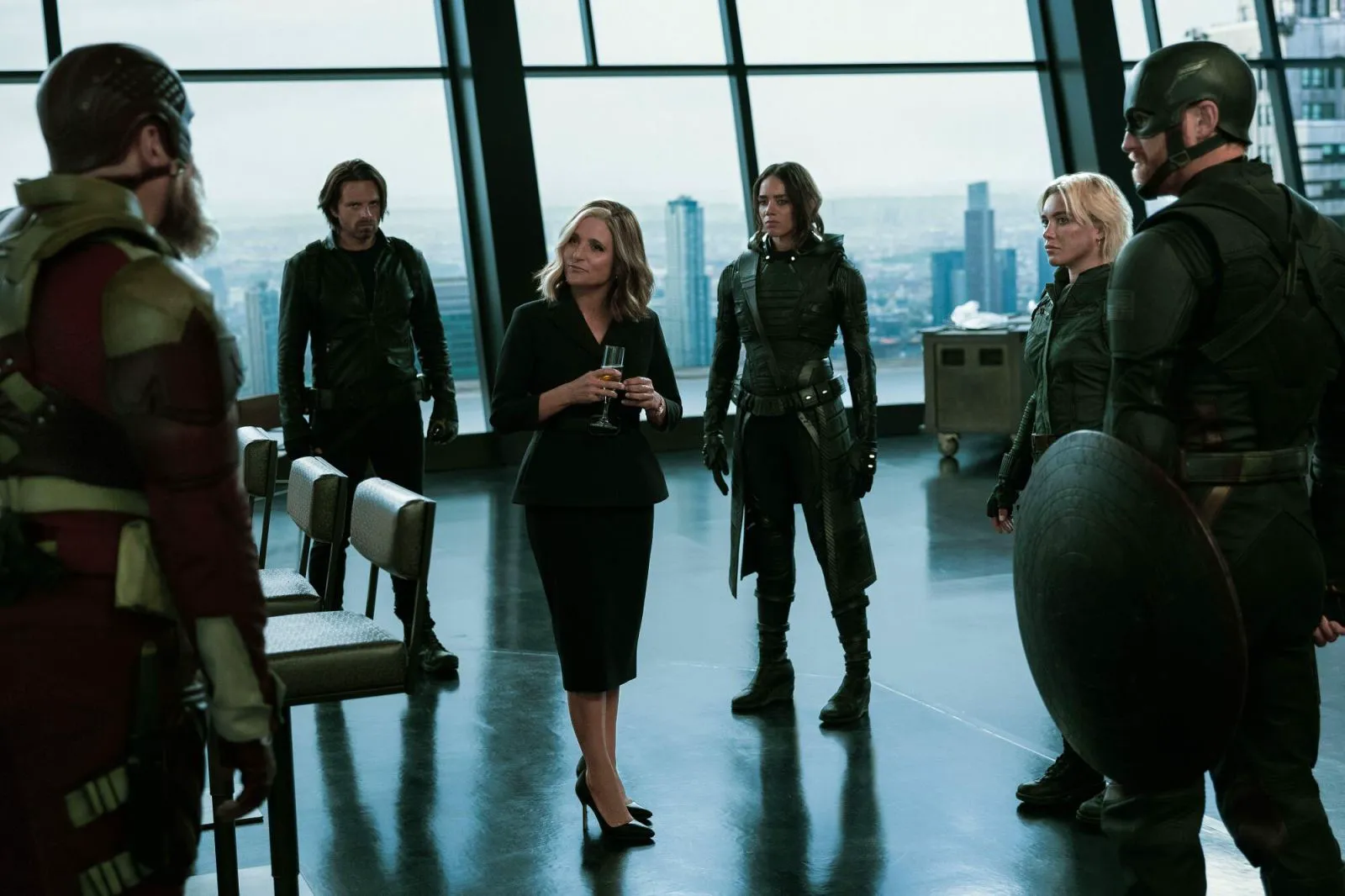Thunderbolts: A Deep Dive into Marvel’s Latest Offering
The newly appointed Director of the CIA, Valentina Allegra de Fontaine (played by Julia Louis-Dreyfus), finds herself on the brink of impeachment. Desperate to prevent her adversaries in Congress from uncovering evidence that would hasten her removal, she dispatches Yelena Belova (Florence Pugh) to a clandestine base with orders to destroy critical documents. However, the super-heroine soon realizes she’s been set up. Valentina has gathered all her mercenaries—John Walker (Wyatt Russell), Ava Starr (Hannah John-Kamen), and Antonia Dreykov (Olga Kurilenko)—in one location, intending for them to eliminate each other. Unexpectedly, these killers unite, bound by their self-loathing, and go on the run. There’s just one catch: they inadvertently unleash Bob (Lewis Pullman), potentially the most powerful, yet mentally unstable, super-being in the history of the universe.

Sebastian Stan as Bucky Barnes in “Thunderbolts”
“Thunderbolts” was initially marketed as Marvel’s foray into A24 territory, promising a shift from action-centric spectacles to a more intimate, character-driven narrative, tackling the unconventional theme of depression for a superhero film. The reality, however, is a far cry from this promise. What we get is a typical, loud, and overbearing blockbuster, punctuated by jokes every five minutes. First and foremost, “Thunderbolts” is firmly entrenched within the Marvel Cinematic Universe, compelling viewers to follow Valentina’s intricate political maneuvers and recall characters from previous films and series. Ava Starr’s inclusion, for instance, feels almost obligatory; she lacks significant dramatic depth, but finding a role for a minor villain from “Ant-Man” seems to be a sacred duty.

Florence Pugh as Black Widow in “Thunderbolts”
Furthermore, “Thunderbolts,” much like its protagonists, feels manufactured. Over the course of two hours, not a single truly memorable action sequence unfolds. Marvel often outsources these scenes to separate directors, who aren’t always the most inspired. Gunfights and brawls in the dark, rescuing a city from falling debris, and a car chase feel more like narrative filler, connecting one dialogue about childhood trauma to the next. And to prevent the audience from becoming too somber, the film resorts to its signature, incessant humor, often dragged out to excruciating lengths, primarily through David Harbour’s character, who embarrasses Yelena with yet another paternal anecdote.

Florence Pugh as Black Widow in “Thunderbolts”
Familiar Themes and Missed Opportunities
The core concept feels like a compilation of recent trends. In essence, it mirrors “Guardians of the Galaxy”: Alexei Shostakov (David Harbour) replaces Drax as the muscle-bound brute, while John Walker embodies a flawed version of Captain America, stepping in for the impulsive Rocket. However, unlike Gunn’s genuinely exceptional film about outsiders seeking family, the characters here explicitly state their fears, desires, and traumas, simplifying the narrative considerably. Even the classic trope of modern therapeutic cinema—that villains are merely misunderstood individuals—is present. Throughout the viewing experience, one can’t shake the feeling of déjà vu, a sensation that must be accepted.
A Glimmer of Hope: Exploring Mental Health
Surprisingly, the theme of depression is handled with a touch of poignancy. The film opens with an extended monologue by Yelena Belova, detailing how her world crumbled after her sister’s death. She has lost the ability to feel, her work has become routine, and she lacks close relationships. Consequently, this Black Widow relative simply drifts along. Following Florence Pugh’s somber performance, other familiar faces emerge: Shostakov copes with his trauma by consuming fast food and alcohol, Walker lashes out at loved ones, and Bob is metaphorically and literally consumed by darkness.
The Potential Unrealized
While “Thunderbolts” openly discusses mental health issues, the writers demonstrate an understanding of the subject matter, illustrating how everyday life can slowly become a prison and one’s own mind the worst enemy, impossible to defeat alone. In these moments, the film seems to find its stride, showing that even superheroes are internally broken. The film communicates with the audience on a relatable level, reminding us of the importance of acknowledging our traumas and sharing our pain with others. Had “Thunderbolts” been a more intimate, dialogue-driven drama about caped individuals unable to leave their homes due to overwhelming despair, it would have been significantly more compelling. Alas, the corporation had other plans.e